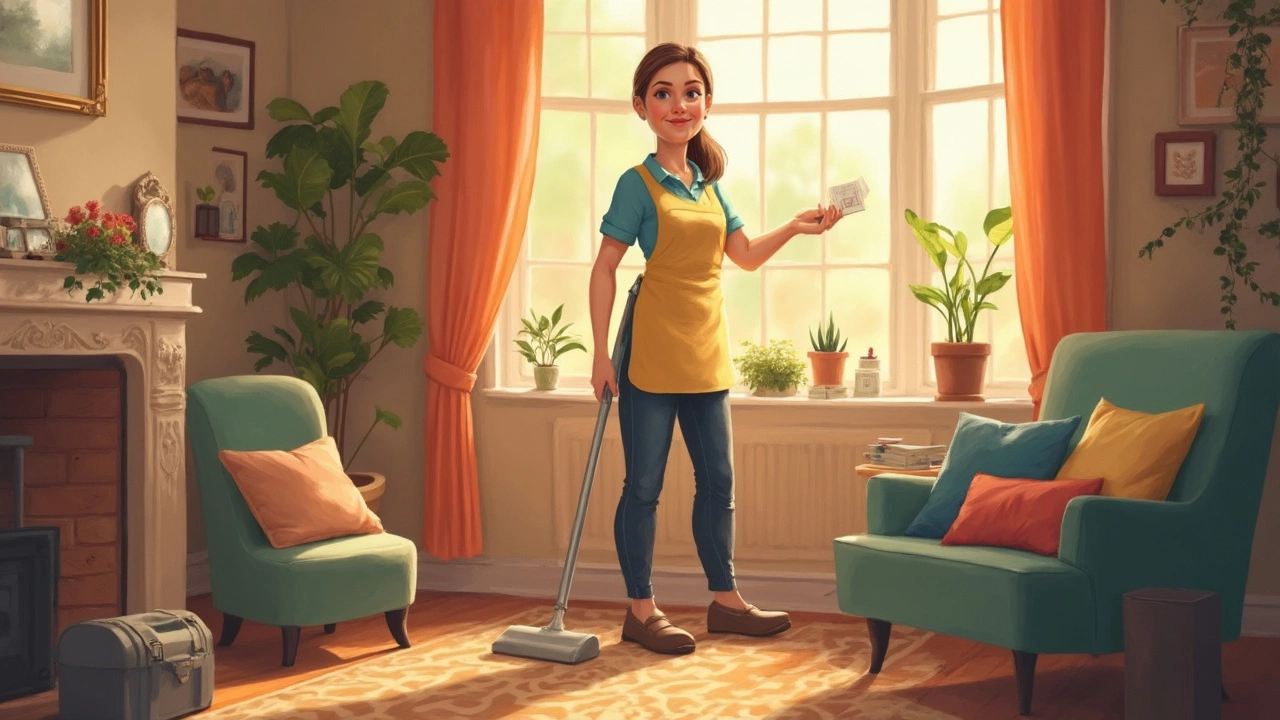Self‑Employed Cleaning: Real Steps to Build a Profitable Business
Thinking about going solo as a cleaner? You’re not alone. More people are leaving traditional jobs to run their own cleaning services because it offers flexibility, better earnings, and control over the work you do. The good news is that starting a cleaning business doesn’t need a massive upfront investment – just a solid plan, the right tools, and a customer‑first mindset.
First, decide what services you’ll offer. Will you focus on residential homes, offices, post‑construction clean‑ups, or a mix? Narrowing your niche helps you price right and market yourself effectively. For example, a specialist in after‑builders cleaning can charge higher rates because the work is intensive and requires extra equipment.
Set Up Your Basics Quickly
Register as a self‑employed sole trader with HMRC – it’s a simple online process. Keep a separate bank account for business income and expenses; this makes tax time far less stressful. Next, get essential insurance: public liability and contents cover protect you if something goes wrong on a client’s property.
Invest in a starter kit of reliable tools. A good vacuum, microfiber cloths, a mop bucket, and a few eco‑friendly cleaning solutions cover most jobs. You don’t need the most expensive gear at first; focus on durability and ease of use. As your client list grows, you can add specialty equipment like a pressure washer for exterior jobs.
Find Clients Without Spending a Fortune
Word‑of‑mouth still works best. Offer a discounted first clean to friends, family, or neighbors and ask them to leave reviews on Google My Business or local Facebook groups. Create a simple flyer with your services, rates, and contact details – hand them out in community centers or local shops.
Online platforms are also gold mines. List your business on sites like Checkatrade, TrustATrader, or Bark. These portals give you exposure to people actively searching for cleaners. Keep your profile clear, add before‑and‑after photos, and respond promptly to inquiries – quick replies often win the job.
Pricing can feel tricky, but start by calculating your costs: travel, supplies, insurance, and the hourly wage you want. Add a margin for profit and compare with local competitors. Many self‑employed cleaners charge per hour for residential jobs (around £15‑£20) and per square metre for commercial contracts.
When you land a job, communicate expectations up front. Send a brief email or text confirming the service date, time, scope, and price. Clear communication prevents misunderstandings and builds trust, which leads to repeat business and referrals.
Time management is crucial. Use a simple calendar app to schedule jobs, block travel time, and set reminders for follow‑ups. Treat each appointment like a mini‑project: arrive on time, bring all needed supplies, and finish with a quick client check‑in to confirm satisfaction.
Finally, keep learning. Watch YouTube tutorials on deep‑cleaning techniques, read blogs about green cleaning products, and join local trade groups. The more knowledge you have, the better service you can offer, and the higher you can charge.
Going self‑employed as a cleaner can be rewarding and profitable when you plan well, stay organized, and focus on delivering a spotless experience. Start with these steps, adjust as you grow, and watch your cleaning business thrive.

Do You Tip a Self-Employed Cleaning Lady?
Wondering if you should tip a cleaning lady who works for herself? This article explores the etiquette of tipping self-employed cleaners, including when to tip and how much. We'll provide insights into why tipping matters, share practical advice, and consider different cultural perspectives. Whether you're moving out or just keeping things tidy, get a clearer understanding of what's expected.
Read More